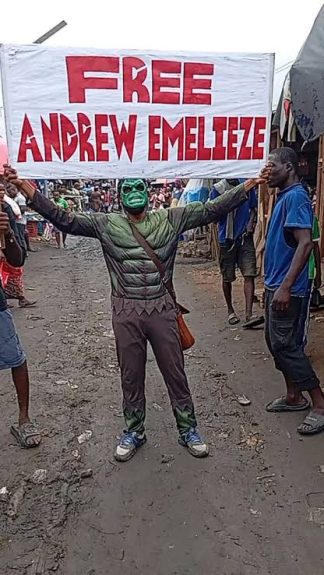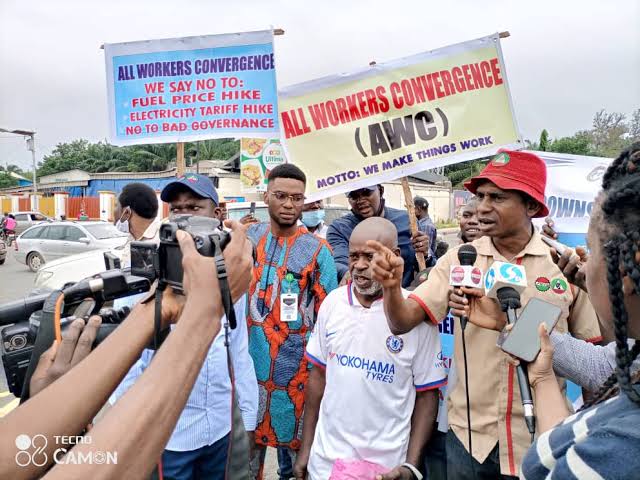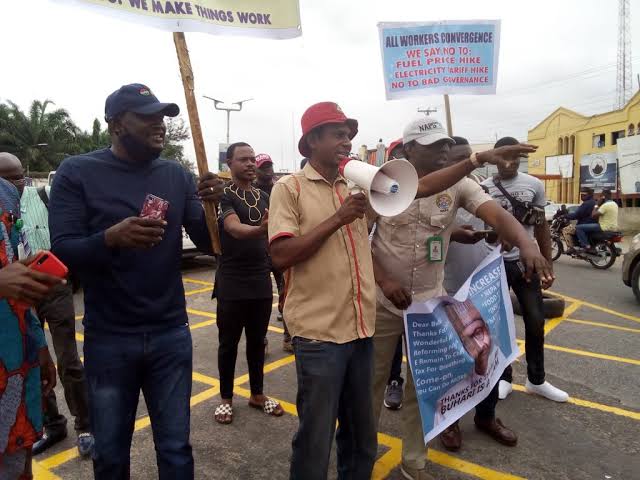
Pius Nsabe
Former Chairman of Trade Union Congress in Oyo State and Current National Convener, All Workers Convergence, Comrade Andrew Emelieze, has been a consistent voice in the struggle for workers’ rights and social justice in Nigeria. Recently, he made headlines following his encounter with the Department of State Services (DSS), where he was detained under controversial circumstances. In this interview with The Journal Nigeria’s Pius Nsabe, he speaks candidly about his arrest, the state of Nigeria’s justice system, the struggles of workers, and his vision for the future of labour activism in the country.
What were the circumstances that led to your arrest by the DSS recently?
I was actually not arrested directly. Rather, I was invited by the DSS for a chat, but I was not allowed to go back. I was eventually detained for 15 days from that day. The experience in detention is something I would not wish for my worst enemy.
Is it true that you were manhandled during your detention?
I was not manhandled. Some of the officers were nice and mature. However, being detained against your will, unexpectedly, and being denied your rights cannot be a worthy experience, especially when you begin to query the rationale for your detention.

Many activists have faced intimidation in the course of their struggles. Do you ever fear for your safety, and what keeps you going despite these risks?
Yes, I agree that activists are facing intimidation, but this will not stop us from pursuing the cause of humanity and justice. As for my safety, we are all humans, and we all encounter one form of fear or the other. I am however consoled by the fact that the course of justice and truth we pursue, and God Almighty, will continue to be my shield. What propels me is our existential reality. No public-spirited person will see the obvious privations in Nigeria and keep quiet. Beyond passion for humanity and justice, what keeps me going is the belief that with constant agitations, the system can be changed for the better.

How would you describe Nigeria’s justice system today, especially from the perspective of activists like yourself?
The judiciary has been the last hope of the masses, and I hold our judicial system in high esteem. The judiciary should be made more independent of the other arms of government, and our society should fashion out ways to ensure compliance with judicial orders, especially by the executive.
You have been at the forefront of agitation for Nigerian workers’ welfare. What exactly do you want, and what are the core demands you are making?
It is not actually what I want, but what society needs. Our society needs justice, and workers need to be protected from exploitation and alienation of labour. Those who create wealth must not be poor in the midst of plenty. Our core demand is the eventual control of production and distribution by the working class in a just society based on equality of the masses.
There is growing criticism that strikes have lost their effectiveness in Nigeria. Do you believe industrial actions still work, or should labour unions adopt new methods of agitation?
Strikes have not lost their potency. The challenge has been what labour leaders have been doing with strikes. Industrial actions are still very effective; labour leaders just need to be more sincere in their approach.

The labour movement in Nigeria today is believed to have compromised when it comes to defending workers’ welfare. Do you agree with that assessment?
The labour movement goes beyond the conventional industrial unions. Therefore, I cannot really say that the labour movement has compromised. I would rather say that the industrial unions are very weak and not living up to expectations.
With the rising cost of living, many Nigerians feel abandoned by both government and organised labour. How do you respond to those who say labour leaders have lost touch with ordinary workers?
I totally agree with you. Labour leaders are very far from the reality on the ground. Labour has been deaf to the biting and harsh economy confronting Nigerian workers.
Do you think Nigeria needs a total restructuring of its labour laws to protect workers better, or is the problem mainly enforcement of existing laws?
I would rather say Nigeria needs a new constitution rather than just changing the labour laws. We need a constitution that will guarantee employment and employees’ rights.
How would you assess the performance of President Bola Tinubu so far on the economy and workers’ welfare?
In terms of workers’ welfare, I am personally very disappointed in President Tinubu. Workers’ pay has been abysmally low. Even when the subsidy on petrol was removed and the naira devalued, nothing substantive was added to workers’ salaries. Even the wage award promised federal workers has not been faithfully implemented. Funnily, the government has increased its budget by over 300 percent while workers continue to remain very poor in the face of the current high cost of living. As regards the national economy, it has been a nightmare for Nigerians, especially since the subsidy removal. Life has been very tough. Surviving in Nigeria today has been hellish. Inflation has been the order of the day, and things are really very expensive and out of the reach of the vast majority.
Looking ahead, what is your vision for the Nigerian worker in the next 10 years, and what role should labour activism play in shaping that future?
My vision for Nigerian workers in the next ten years is that they should be free from exploitation and become more conscious. The role of activism should be continuous agitations and pressure on the system.
